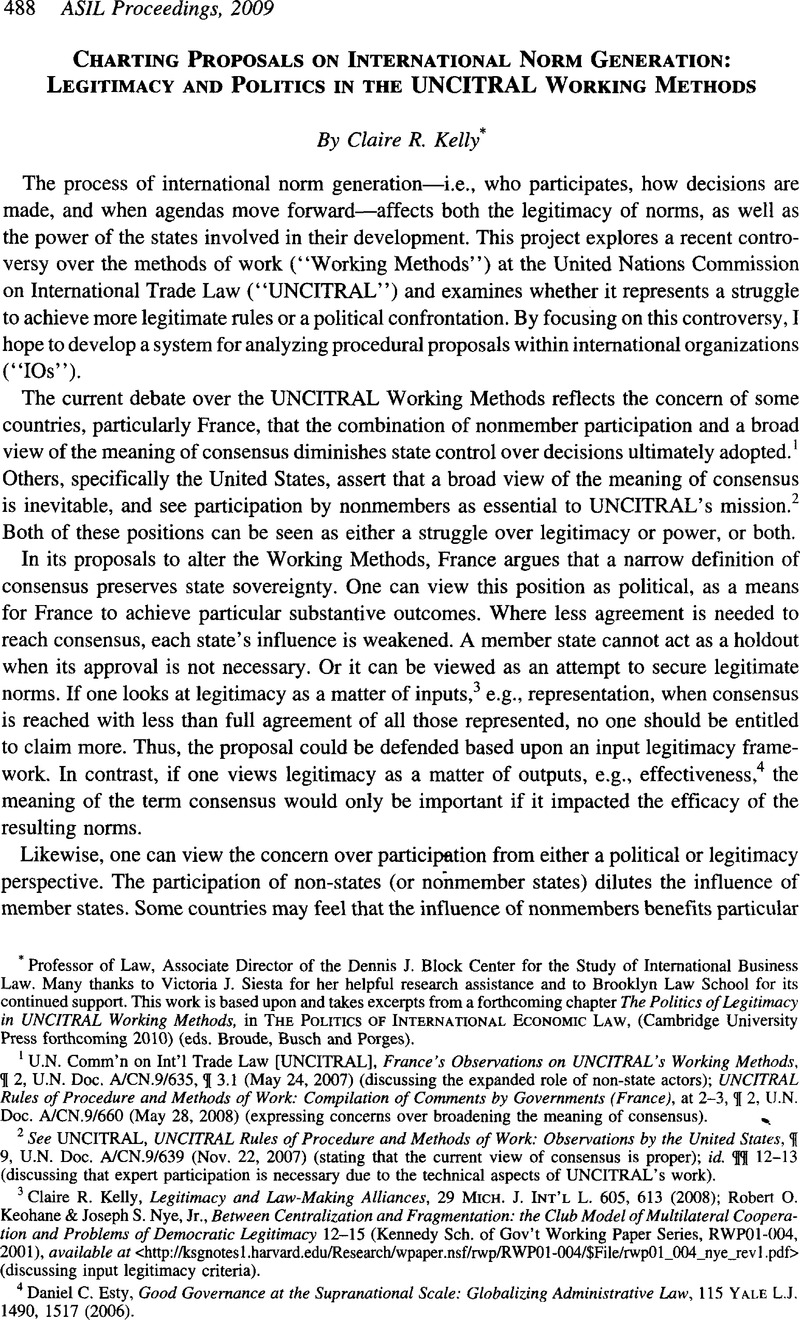No CrossRef data available.
Published online by Cambridge University Press: 28 February 2017

1 U.N. Comm’n on Int’l Trade Law [UNCITRAL], France’s Observations on UNCITRAL’s Working Methods, ¶ 2, U.N. Doc. A/CN.9/635, ¶ 3.1 (May 24, 2007) (discussing the expanded role of non-state actors); UNCITRAL Rules of Procedure and Methods of Work: Compilation of Comments by Governments (France), at 2-3, ¶ 2, U.N. Doc. A/CN.9/660 (May 28, 2008) (expressing concerns over broadening the meaning of consensus).
2 See UNCITRAL, UNCITRAL Rules of Procedure and Methods of Work: Observations by the United States, ¶ 9, U.N. Doc. A/CN.9/639 (Nov. 22, 2007) (stating that the current view of consensus is proper); id. ¶¶ 12-13 (discussing that expert participation is necessary due to the technical aspects of UNCITRAL’s work).
3 Kelly, Claire R. Legitimacy and Law-Making Alliances, 29 Mich. J. Int’l L. 605, 613 (2008)Google Scholar; Keohane, Robert O. & Nye, Joseph S. Jr., Between Centralization and Fragmentation: the Club Model of Multilateral Cooperation and Problems of Democratic Legitimacy 12-15 Google Scholar (Kennedy Sch. of Gov’t Working Paper Series, RWP01-004, 2001), available at <http://ksgnotesl.harvard.edu/research/wpaper.nsf/rwp/rwp01-004/$ile/rwp01_004_nye_revl.pdf> (discussing input legitimacy criteria).
4 Esty, Daniel C. Good Governance at the Supranational Scale: Globalizing Administrative Law, 115 Yale L. J. 1490, 1517 (2006)CrossRefGoogle Scholar.